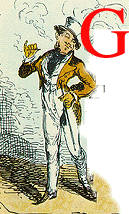 ender and class become intertwined in Pip's pursuit of Estella whom he sees as the prize awarded to him by Miss Havisham for his services to her as a young man. Estella, according to Pip — although he knows she does not love him — has no choice about the matter and will eventually marry him. It is evident that Pip romanticizes the situation when Miss Havisham summons him to Satis House because Estella has arrived from France. He imagines Miss Havisham a fairy godmother and Estella the princess he earns as his reward for saving the castle. Although couched in fairy tale terms, Estella is still seen as the object whom Pip acknowledges to have great beauty (but no emotion) is an object and a prize. Miss Havisham "had adopted Estella, she had as good as adopted me, and it could not fail to be her intention to bring us together. She reserved it for me to restore the desolate house, admit the sunshine into the dark rooms, set the clocks a going and the cold hearths ablazing, tear down the cobwebs, destroy the vermin — in short, do all the shining deeds of the young Knight of romance, and marry the Princess" (253).
ender and class become intertwined in Pip's pursuit of Estella whom he sees as the prize awarded to him by Miss Havisham for his services to her as a young man. Estella, according to Pip — although he knows she does not love him — has no choice about the matter and will eventually marry him. It is evident that Pip romanticizes the situation when Miss Havisham summons him to Satis House because Estella has arrived from France. He imagines Miss Havisham a fairy godmother and Estella the princess he earns as his reward for saving the castle. Although couched in fairy tale terms, Estella is still seen as the object whom Pip acknowledges to have great beauty (but no emotion) is an object and a prize. Miss Havisham "had adopted Estella, she had as good as adopted me, and it could not fail to be her intention to bring us together. She reserved it for me to restore the desolate house, admit the sunshine into the dark rooms, set the clocks a going and the cold hearths ablazing, tear down the cobwebs, destroy the vermin — in short, do all the shining deeds of the young Knight of romance, and marry the Princess" (253).
Estella says to Pip, "I have no heart...I have no softness there, no sympathy sentiment nonsense" (259). Pip, however, steadfastly believes that Estella will eventually be his until Magwitch returns to England and disillusions him. "Truly it was impossible to dissociate her from presence from all those wretched hankerings after money that had disturbed my boyhood — from all those ill-regulated aspirations that had first made me ashamed of home and Joe" (257). In fact, Pip's desire for Estella involves many factors outside of her beauty — money, status, prestige, everything that distinguishes him from having the "coarse hands" and "thick boots" of a blacksmith's boy. I am not ruling out the possibility that Pip feels genuine love for her, but her image and her character are bound up so tightly with status symbols and Pip's own desire to rise that she is more of a symbol of a superior social status than a figure of romantic love.
Related Materials
- Gender and Pip's Fantasy of Social Advancement
- Questions of Feminism in Aurora Leigh
- Women and Social Status in and Great Expectations
- Conflicts of the Woman Poet in Aurora Leigh
References
Dickens, Charles.Great Expectations.New York: Penguin Books, 1985.
Last modified 1996